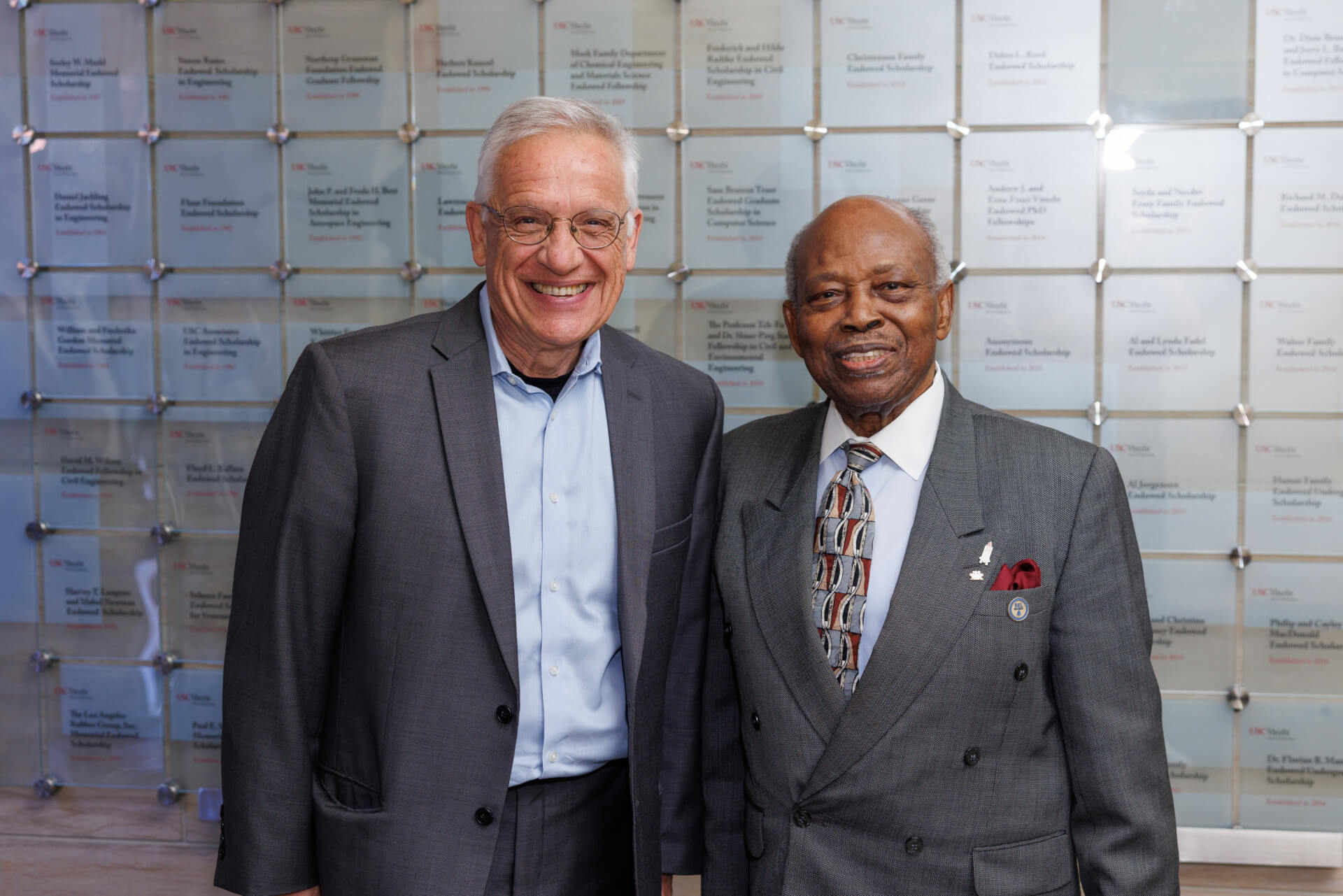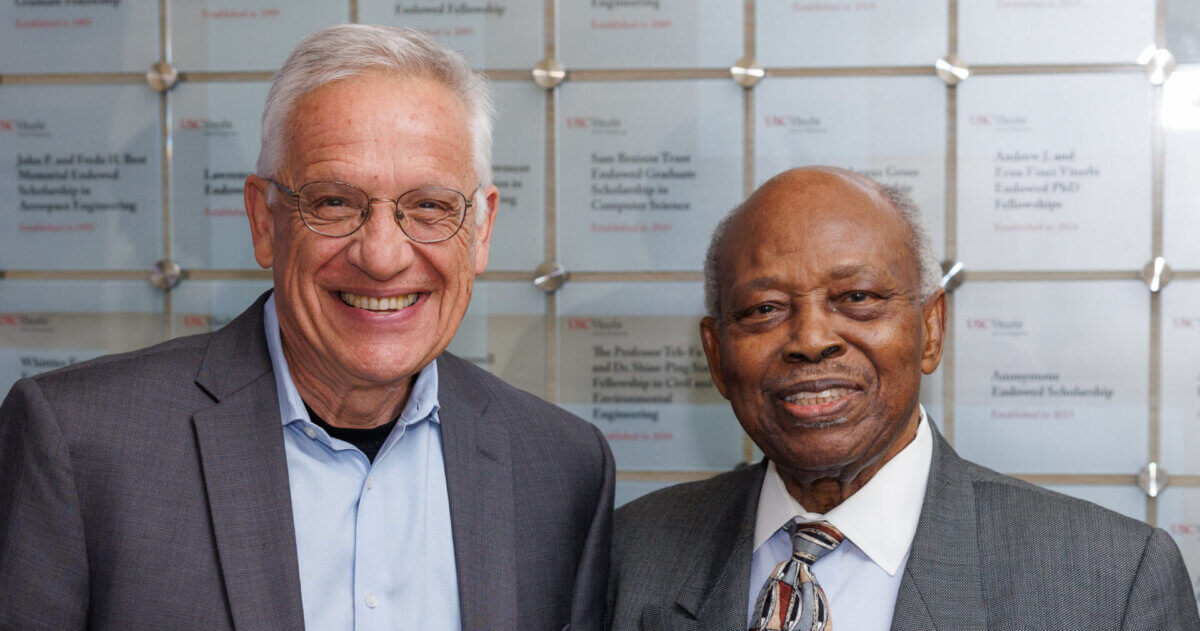
USC Viterbi’s Dean Yannis Yortsos celebrated the generosity of Augustine Esogbue (’68) at an April 10 event in Ronald Tutor Hall.
At an April 10 ceremony inside Ronald Tutor Hall, Dean Yannis Yortsos hosted Viterbi Awards honoree Augustine Esogbue, Ph.D. ’68, to celebrate the newly established Augustine O. Esogbue and Richard E. Bellman Endowed Fellowship in Engineering for USC Viterbi graduate and Ph.D. students.
Surrounded by friends, family and former colleagues, Esogbue, now professor emeritus at Georgia Tech’s H. Milton Stewart School of Industrial and Systems Engineering, recalled Bellman, his late mentor, with great fondness. The longtime USC Viterbi professor was considered the “father of dynamic programming.”
“Richard’s approach to mentoring was creative, flexible and impactful,” he said. “He emphasized giving back and engineering change for the improvement of life.”
It was a busy few days for Esogbue, who received the Mark A. Stevens Distinguished Alumni Award at the 45th Viterbi Awards in Beverly Hills on April 11.
“There are so many things I can say to describe Augustine,” said Dean Yortsos upon unveiling an acknowledgement plaque on the building’s scholarship and fellowship donor wall. “He is a visionary, and we are proud to honor him.”
Having come to the U.S. from Nigeria with a grant from the African Scholarship Program of American Universities, Esogbue studied electrical engineering at UCLA and completed his master’s degree in industrial engineering and operations research at Columbia.
He then came to USC in 1965. Together with Bellman, Esogbue set out to research mathematical modeling of bioscience, with the goal of improving large-scale systems within the healthcare field.
“When I came to USC, it was the beginning of a major era of change,” he once told Viterbi Magazine. “It was very rare for one man to be criss-crossing traditional disciplines like mathematics, engineering and medicine.”
In 1968, Esogbue graduated from what is now the Daniel J. Epstein Department of Industrial and Systems Engineering. In the process, he became the world’s first Black Ph.D. in that field.
He focused on what is known as fuzzy logic as well as issues ranging from power distribution in developing countries to retrieval of space satellites for NASA. He also worked on power for prosthetic devices, patient safety systems in hospitals and other large-scale disaster control systems.
Studying at USC was momentous for Esogbue in another way as well.
Weeks after he joined Bellman’s lab in 1965, the Watts riots and anti-Vietnam War demonstrations ignited the country.
These seismic events stayed with him, as he eventually joined the faculty at Case Western University in Cleveland and then moved to Georgia Tech in Atlanta, where he became the first Black professor and where he discovered a dearth of Black graduate students.
He viewed the problem as a socio-technical issue that could be solved by reworking the city’s educational framework. So he made it his mission to guide talented minority students through Georgia Tech’s engineering school and toward careers in the field.
And it’s a mindset that has followed Esogbue on his professional path.
“Because of what Richard did for me, I am in a better position to help people find their cause,” he said.
Published on April 24th, 2024
Last updated on April 24th, 2024

Wanda Parisien is a computing expert who navigates the vast landscape of hardware and software. With a focus on computer technology, software development, and industry trends, Wanda delivers informative content, tutorials, and analyses to keep readers updated on the latest in the world of computing.


